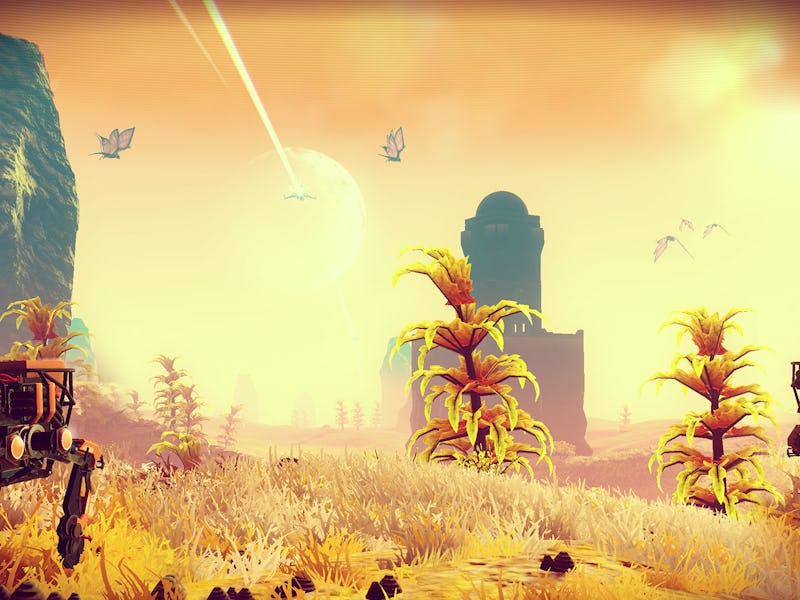Can 'No Man's Sky' and 'Star Citizen' Possibly Live Up to the Hype?
There's a lot of excitement about 'No Man's Sky' and 'Star Citizen', but history says they're more likely to disappoint.

The most-hyped computer game of 1994 was named Outpost. And I was all in on it. Here was a game where you took control of the last remnants of humanity, colonizing a distant planet, using actual data and ideas from NASA about how such a colonization would work, gorgeous graphics, coming from a well-respected publisher in Sierra On-Line. It was the game of science fiction dreams — a can’t-miss proposition.
Of course, it missed. Badly. Outpost was an utter garbage fire of a game, utterly incomprehensible — your settlers would be constantly dying and never tell you why — with a useless manual because half of the game had been removed in order to make release. Magazines that had spent the year breathlessly hyping it were dropping one-star reviews and calling it one of the worst games of all time.
I learned two lessons from this experience: don’t trust the video game hype cycle, and don’t believe space games that promise the galaxy. In the former case, it’s always good to be skeptical, though an Outpost-level disaster is rare these days. But space games? Space games have, if anything, only gotten more ambitious and promised even more stars. Both No Man’s Sky and Star Citizen are science fiction games with immense amounts of hype and funding, promising gigantic universes of content, with players able to live out their science fiction dreams.
It all sounds familiar, and not just from my Outpost experience. More recently there was Spore, the much-anticipated dream game where players evolved an organism from its beginning to the stars. Although initially well-received, Spore quickly gained a reputation for being a shallow collection of mini-games more than a coherent experience — something one of its designers, Soren Johnson, reflected on for its fifth anniversary.
Or there’s Freelancer, initially designed by Star Citizen’s Chris Roberts to be what Star Citizen is promising: a huge, persistent universe with thousands of players flying their ships around, talking, trading, and getting into dogfights. The project becomes so compromised that Roberts left it and the entire industry for a decade, and the eventual release was recognized as pretty good, but compromised from its massive ambitions.
“Space is big” says The Hitchhiker’s Guide to the Galaxy, in one of its many bits of wisdom masquerading as facetiousness. The size is literal but also metaphorical, allowing for science fiction dreams of total freedom and creativity and novelty. The dream of being the heroic explorer, without the baggage that real-world celebrity explorers come with.
Video games have long been understood as being potentially able to serve the same impulses. “Go anywhere, do anything, be anyone” is a dream of both space and gaming. This combination has led to many of the most ambitious ideas—dreams—in gaming history. But it’s also consistently led to disappointment, with no unambiguous successes to be found in the worth of ambitious, open-ended space games.
The excitement for No Man’s Sky and Star Citizen is understandable. They’re promising the dream. And hey, maybe this time the dream is achievable — No Man’s Sky may have the technology to make its procedurally-generated worlds varied and interesting and massive. Star Citizen may have the funding to allow Chris Roberts to fulfill his design dreams, unfettered.
But the history of gaming suggests that they probably won’t fulfill the dream.